Staff
TraMe Members
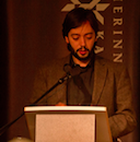
Francesco Mazzucchelli
Director
Francesco Mazzucchelli, Ph.D. is the director of Trame - Centre for Semiotic Studies on Memory. He is a researcher (type B) at the University of Bologna, at “CUE, Centro Internazionale di Studi Umberto Eco”, and teaches Semiotics of memory and Semiotics of urban spaces. His publications, many of which focus on the relationship between memory and spatiality, include the book “Urbicidio. Il senso dei luoghi tra distruzioni e ricostruzioni nella ex Yugoslavia” (Bononia UP, 2010) and the edited volume (together with Gruia Badescu and Britt Baillie) “Transforming Heritage in the Former Yugoslavia” (Palgrave, 2021). His research is mainly focused on practices of rewriting urban memory and cultural heritage (with a specific focus on contested, dissonant and difficult heritage in the South-Western Balkans).

Patrizia Violi
Academic Consultant
Patrizia Violi is an Alma Mater Professor at the University of Bologna. She was director of the “Centro Internazionale di Studi Umberto Eco” and of TraMe. She is currently working on trauma and memory, especially in relation to sites of memory and monuments. Her latest book is “Landscapes of memory. Trauma, Space, History” (Peter Lang, 2017).
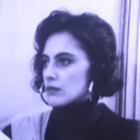
Cristina Demaria
Steering Committee
Cristina Demaria is Associate Professor of Semiotics at the University of Bologna, where she teaches Semiotics of conflict, Semiotics of social sciences and Gender Studies. Her research interests are mainly focused on gender representations, on media language, television and cinema. Moreover, she works on cultural memory, post-conflict memory and cultural trauma, with a particular focus on the forms and genres of testimony and on the spaces and places of memory. In particular, she has worked extensively on representations of trauma in the context of the post-dictatorship in Chile and Argentina. Her publications include “Semiotica e Memoria” (Carocci, 2006) and the edited volume “Post-conflict Cultures: A Reader” (CCCP Press, London, 2020).
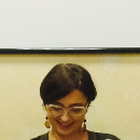
Anna Maria Lorusso
Steering Committee
Anna Maria Lorusso is Associate Professor of Semiotics at the University of Bologna, where she teaches Semiotics, Cultural Semiotics, and Semiotic Analysis of Journalistic Texts. She is also Director of the Master in “Editoria Cartacea e Digitale” at the University of Bologna. She is Principal Investigator of the European project “Speme - Questioning Traumatic Heritage: Spaces of Memory in Europe, Argentina, Colombia”. Her research interests have always focused on the rhetorical-discursive dimension of culture: forms of collective narratives, dominant rhetorical figures, discursive modes of stabilisation, change and translation of stereotypes and clichés. She is the author and editor of numerous books, and her work has been published in leading journals such as VS and Lexia. Her publications include “Cultural Semiotics: For a Cultural Perspective in Semiotics” (Palgrave Macmillan, 2015) “Post-verità. Fra reality TV, social media e storytelling” (Laterza, 2018).

Claudio Paolucci
Steering Committee
Claudio Paolucci is Associate Professor of Semiotics at the University of Bologna, where he teaches Interpretive Semiotics, Philosophy of Language, Semiotics of Perception and the Body, Semiotics of Musical and Audiovisual Language. He is coordinator of the PhD programme in “Philosophy, Science, Cognition and Semiotics” at the Department of Philosophy and Communication Studies. He is mainly interested in semiotic theory, cognitive science, pragmatism, theory of interpretation, philosophy and theory of language. Furthermore, he is Principal Investigator of two European projects (NeMo and Fakespotting), director of the “Centre for Enactivism and Cognitive Semiotics” and scientific coordinator of “CUE, Centro Internazionale di Studi Umberto Eco”. His latest book is “Cognitive Semiotics. Integrating Signs, Minds, Meaning and Cognition” (Springer, 2021).
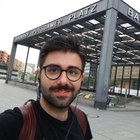
Mario Panico
Scientific Secretary
Mario Panico is a post-doctoral fellow at the University of Bologna. He teaches Visual Semiotics at the European Institute of Design - IED in Rome. He deals with topics related to the semiotics of memory and the representation of the traumatic and nostalgic past in contemporary culture. He is currently conducting research on the artistic textualisation of the memories of the sons, daughters and grandchildren of perpetrators and collaborators of European dictatorships. He has published on relationship between monumentality and conflict, nostalgia and urban practices, family memories and intersemiotic translation. He is currently editing the Italian translation of two articles by Marianne Hirsch and Leo Spitzer (on the relationship between post-memory and nostalgia) and his next monograph will be entitled “Nostalgia, Spatial Consolation and Conflict Heritage” (Palgrave Macmillan).
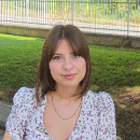
Martina Grinello
Member
Martina Grinello is a PhD candidate in Semiotics at the University of Bologna, within the national research programme PNRR – PE CHANGES (Spoke 4), focused on innovation in cultural heritage and digital transformation.
Her research explores processes of museum decolonisation in Europe, with particular attention to how institutional narratives address colonial trauma, memory politics and practices of inclusion. She conducts fieldwork and semiotic analysis in major museums, including the Museo delle Civiltà (Rome), Museo della Guerra (Rovereto), Museo delle Culture (Milan), Musée du Quai Branly and Musée de l’Homme (Paris), Tropenmuseum (Amsterdam) and AfricaMuseum (Tervuren).
She is a member of TRAME – Centre for Semiotic Studies on Memory and collaborates as a researcher with LAMC – Laboratoire d’Anthropologie des Mondes Contemporains at the Université Libre de Bruxelles.
Combining semiotics, participatory pedagogies, intersectional feminism, and applied research with a decolonial approach, she designs interdisciplinary tools to rethink how museums communicate, educate, and engage with diverse publics.

Daniele Salerno
Trame Member
Daniele Salerno received his PhD in Semiotics from the University of Bologna-Italian Institute of Human Sciences (2009). He is currently a Marie Curie Global Fellow at the University of Utrecht and a visiting scholar at the University of Buenos Aires. In his doctoral and post-doctoral research at the University of Bologna he dealt with the cultural elaboration of terror and political violence, with a particular focus on the forms of cultural memory. He is currently working on cultural memory and political activism - as a collaborator within the ERC project “Remembering Activism: The Cultural Memory of Protest in Europe” directed by Prof. Ann Rigney - focusing in particular on the use of cultural memory in LGBTQ activism between Europe and Latin America.